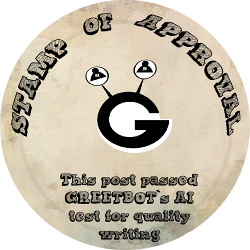Former Football (soccer) Star George Weah Wins 2017 Liberian Presidential Election
Change is coming to Liberia. In the first peaceful transfer of power in 70 years, George Weah has defeated vice president Joseph Boakai in a decisive victory, 65.1% to 38.5%, with 98.1% of all votes counted. The first round of the election occurred on October 10th and ending with no candidate earning a majority of the votes, triggering a second-round runoff between Weah and Boakai on December 26th.

(PC - Reuters) (Picture depicts a happy George Weah)
George Weah is now a two-time Presidential candidate for the Coalition for Democratic Change (CDC) and was a vice presidential candidate for the party in 2011. His victory is the first electoral win for the CDC in the parties history and marks a period of change for Liberia. The CDC and its coalition formed the largest party in the House of Representatives in Liberia, earning 21 seats out of 76, and will likely be forced to form a larger coalition to pass through legislation. It also has low representation in the Senate, only owning 3 out of the 30 seats, showing a lot of coalition work will have to be worked on between parties.
As for the policies, George Weah and the CDC are pushing in comparison to the Joseph Boakai and the Unity Party, its anyone's guess. Weah campaigned on fighting corruption, bringing development, building roads, and improving education. However, these policies are quite vague and more or less represent the policies of the leaders of nearly every political party in Africa. It will be up to his own actions to decide the success of his presidency. He also promised European leaders that his party would create a stronger economic relationship between Europe and Liberia. This is a policy that is more believable, Weah is famous all around Europe from his former success in Football, and his negotiation power as a familiar face within every European country will likely lead to good relations and economic partnerships.
The leadership Sirleaf and the Unity party brought to Liberia are tough shoes to fill. Sirleaf brought Liberia through the devastating Ebola crisis and maintained peace in Liberia in the aftermath of two civil wars and decades of unrest. Despite these accomplishments, Liberia has been left with much to desire. 80% of the Liberian population lives on less than $1.25 a day. The countries GDP per capita is a mere 455.35 USD (in comparison Nigeria's is 2,177.99 USD, the United States is 57,466.79 USD). The Unity party was also not immune to corruption, as it faced a fair share of scandals throughout its power. One of the key aspects that may have led to Boakai losing is the fact Sirleaf refused to endorse his candidacy and stump for him in the campaign. It appears Sirleaf and him have feuds between each other despite being in the same party and on the same ticket in 2011 and regardless Sirleaf wanted to stay out of the 2017 election.
(PC - emansion.gov.lr) (Sirleaf and Boakai sitting nearby each other)
This election marks a key moment in the development of democracy in Liberia, a country with a rich history and has struggled with implementing a representative democracy since the mid-1800s. The country was originally colonized by the United States as a way to move a large portion of the free black population in the United States back to Africa. This concept was extremely flawed and only partially caught on, as thousands of free blacks moved to Liberia, but the overwhelming majority stayed in the United States. The Americo-Liberians that did arrive in Africa faced a constant struggle and conflict with the native tribes living within the territories of Liberia, and many of the intended civilization missions of the original population failed based on the constant backlash from the natives. Americo-Liberians only made up 5% of the population at their highest, however, created the central elements of government and infrastructure in Liberian society at the time.
The Americo-Liberians controlled political power in Liberia till 1980, when a violent coup led to the President and most of his cabinet getting murdered and a new leader being put in power. Liberia went through political chaos and many periods of violent civil war till 2005, when the country had a free and fair election between Ellen Johnson Sirleaf and now president-elect, George Weah. This election was peaceful and started the two-term presidency of Sirleaf. Sirleaf worked hard to end conflicts within the population and help the country through the 2014 Ebola crisis. after her two terms, Sirleaf stepped aside to allow the 2017 election between Weah and Boakai to take place.
How do you think Weah's election will affect Liberia and its future as a democracy? Please give your opinion in the comments! Thanks for reading the blog!
Sources that helped me write this post!
http://www.cdcliberia.org/index.php
https://en.wikipedia.org/wiki/History_of_Liberia
https://www.reuters.com/article/us-liberia-election/soccer-star-george-weah-wins-liberian-presidential-election-idUSKBN1EM1NR
https://www.theguardian.com/world/2017/dec/28/ex-footballer-george-weah-to-become-liberias-president
Hi. I am @greetbot - a bot that uses AI to look for newbies who write good content!

Your post was approved by me. As reward it will be resteemed by a resteeming service.
Resteemed by @resteembot! Good Luck!
The resteem was paid by @greetbot
Curious?
The @resteembot's introduction post
Get more from @resteembot with the #resteembotsentme initiative
Check out the great posts I already resteemed.
Resteemed by @resteembot! Good Luck!
The resteem was paid by @greetbot
Curious?
The @resteembot's introduction post
Get more from @resteembot with the #resteembotsentme initiative
Check out the great posts I already resteemed.